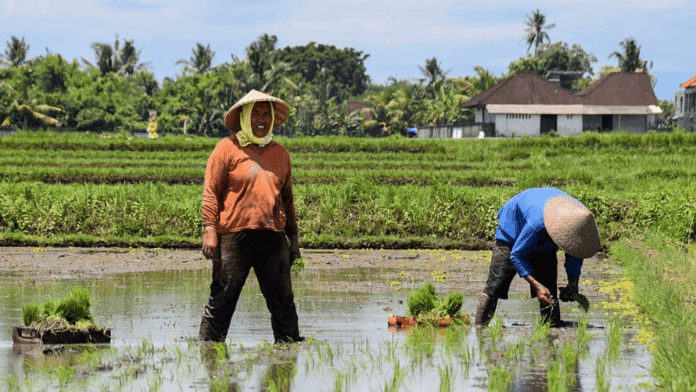News in Brief:
– El Niño-induced dry weather in Indonesia leads to record-high rice prices, triggering long queues for affordable rice and impacting local farmers and households.
– Calls for diversification of carbohydrate sources and adoption of technological solutions emerge amidst efforts to address the crisis and safeguard food security.
Due to El Niño-induced dry spell, Indonesia is currently grappling with soaring rice prices, putting immense pressure on local farmers and households.
Despite government efforts to alleviate the crisis, the situation remains dire, underscoring the significance of rice in the nation’s economy and cultural fabric.
Indonesian households, like that of 52-year-old Sutinah from Pasuruan, East Java, spoke to a media outlet on the struggle as they navigate long queues in hopes of securing affordable rice through government schemes. The surge in rice prices, driven by the scarcity fueled by El Niño, has left many families with no choice but to seek relief through such initiatives.
Rice, deeply ingrained in Indonesia’s history and culture, holds profound significance beyond mere sustenance. With over 90% of families relying on it as a daily dietary staple, any disruption in its availability reverberates throughout society. The cultural and economic importance of rice is undeniable, as evidenced by its pivotal role in shaping Indonesia’s societal landscape.
Impact of rice shortage on farmers and food security in Indonesia
The repercussions of the rice crisis extend beyond household budgets to the very livelihoods of farmers. Reduced yields and soaring prices not only threaten food security but also exacerbate economic hardships for millions dependent on agriculture. The reliance on rice imports further underscores the vulnerability of Indonesia’s agricultural sector to external factors.
As the nation grapples with the rice shortage, calls for diversification of carbohydrate sources echo across various sectors. Initiatives promoting alternative crops and technological interventions, such as drought-tolerant seed varieties and digital farming solutions, offer a glimmer of hope in bolstering resilience against future crises.
While the path forward remains challenging, the integration of technology and sustainable agricultural practices emerges as a beacon of hope. Through concerted efforts aimed at enhancing irrigation infrastructure, promoting crop diversification, and harnessing digital advancements, Indonesia seeks to mitigate the impact of climate-induced disruptions and safeguard food security for future generations.



